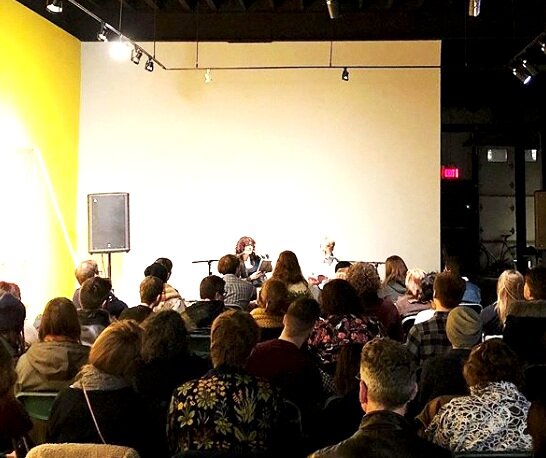


WORKSHOP // When There is No Antidote: Toxic Media Ecologies + Strati-Tactical Intervention @ Toxic Media Ecologies
This interactive workshop starts from the premise that situated amidst seemingly omnipresent crises and ongoing toxic shocks, the question of “critical” academic research has itself become de/limited by the search for common cures and standardizable solutions. At the same time that research methods have expanded and proliferated in order to dilate what counts as “legitimate” study, opting for more “creative” methods and/or “non-traditional” approaches, scholarly inquiry nevertheless remains committed to methodocentrism (Snaza & Weaver, 2017) or the belief that with the right method, an antidote to today’s toxic media ecologies is both possible and of the utmost imperative. In this workshop, we will work together to interrogate such solutionist demands by developing a series of collaborative strati-tactics that do not aim to provide pre-determined models and methods, but instead work as provisional platforms from which future research trajectories may (or may not) emerge.
Workshop led by Jessie Beier.

BOOK LAUNCH // How to Make Art at the End of the World (Natalie Loveless) & Animate Literacies (Nathan Snaza)
A Book Launch for Natalie Loveless' How to Make Art at the End of the World and Nathan Snaza's Animate Literacies. Hosted by Glass Bookshop and Latitude 53, in conjunction with the CoLAB and Lectures on Ahuman Pedagogy, this event will feature conversations with the authors and more.
About HOW TO MAKE ART AT THE END OF THE WORLD (Natalie Loveless, 2019, Duke UP):
In recent years, the rise of research-creation—a scholarly activity that considers art practices as research methods in their own right—has emerged from the organic convergences of the arts and interdisciplinary humanities, and it has been fostered by universities wishing to enhance their public profiles. In How to Make Art at the End of the World Natalie Loveless draws on diverse perspectives—from feminist science studies to psychoanalytic theory, as well as her own experience advising undergraduate and graduate students—to argue for research-creation as both a means to produce innovative scholarship and a way to transform pedagogy and research within the contemporary neoliberal university. Championing experimental, artistically driven methods of teaching, researching, and publication, research-creation works to render daily life in the academy more pedagogically, politically, and affectively sustainable, as well as more responsive to issues of social and ecological justice.
About ANIMATE LITERACIES (Nathan Snaza, 2019, Duke UP):
In Animate Literacies Nathan Snaza proposes a new theory of literature and literacy in which he outlines how literacy is both constitutive of the social and used as a means to define the human. Weaving new materialism with feminist, queer, and decolonial thought, Snaza theorizes literacy as a contact zone in which humans, nonhuman animals, and nonvital objects such as chairs and paper all become active participants. In readings of classic literature by Kate Chopin, Frederick Douglass, James Joyce, Toni Morrison, Mary Shelley, and others, Snaza emphasizes the key roles that affect and sensory experiences play in literacy. Snaza upends common conceptions of literacy and its relation to print media, showing instead how such understandings reinforce dehumanizations linked to dominant imperialist, heterosexist, and capitalist definitions of the human. The path toward disrupting such exclusionary, humanist frameworks, Snaza contends, lies in formulating alternative practices of literacy and literary study that escape disciplined knowledge production.



